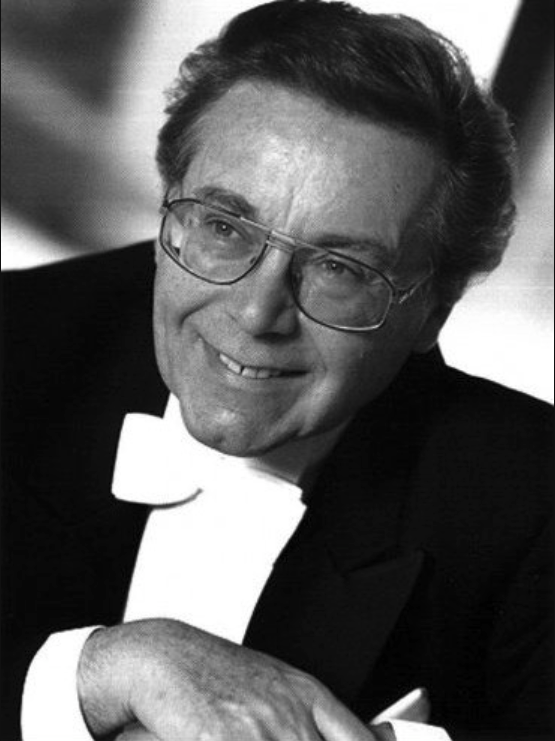léonie sonning music prize 2005
The British conductor Sir John Eliot Gardiner received the Léonie Sonning Music Prize of 500,000 Danish kroner at a concert on 13 October 2005 at the Radio House Concert Hall in Copenhagen. The concert was broadcast live on the Danish Broadcasting Corporation’s P2 radio channel.
The prize was presented by Steen Frederiksen, an editor at the Danish Broadcasting Corporation and chairman of the Léonie Sonning Music Foundation. He gave the prize speech in lieu of the board member Michael Schønwandt, who was not able to be present. The speech included the following comments:
‘Sir John, you have always strived to expand your horizons, you have thrown yourself into the unknown in search of deeper truths. With your excellent ensembles, the Monteverdi Choir and English Baroque Soloists, you have shown us many of the treasures of baroque music, including Bach’s complete cantatas. With your Orchestre Révolutionnaire et Romantique, you have explored early Romantic music, not least that by Berlioz, with astonishing results. You also work with symphony orchestras, with results that are both innovative and surprising. That is one reason for which you deserve this prize: what is important to you is music in all its endless variety – to express musical feelings from person to person.’
citation
The Léonie Sonning Music Prize 2005, of 500,000 Danish kroner, is awarded to the conductor Sir John Eliot Gardiner for his revolutionary work on the music of the Baroque, Classical and Early Romantic eras, his knowledge of it and revolutionary efforts to better understand it. Based on tireless research and deep insights into performance practice, Sir John has brought hundreds of years of music to a large audience around the world though landmark concerts and recordings
In his speech of thanks, Sir John Eliot Gardiner made the following remarks:
‘I am immensely honoured to receive this wonderful award and join a lineage of incredibly talented musicians some of whom are my personal heroes. And I am so happy that it has happened as part of a concert with this wonderful orchestra and choir, because there’s nothing so pointless as a conductor standing alone.’
You can listen to both the award speech and Sir John Eliot Gardiner’s acceptance speech here:
The programme
Haydn Autumn and Winter, from the oratorio The Seasons
Carl Nielsen Springtime on Funen
Participants
Camilla Tilling, soprano
Mark Padmore, tenor
Karl-Magnus Frederiksson, baritone
DR Radio Choir and DR Children’s Choir
Members of Copenhagen Boys’ Choir
Danish National Symphony Orchestra
Sir John Eliot Gardiner, conductor
John Eliot Gardiner in Denmark
Sir John Eliot Gardiner performed in Denmark at a number of events towards the end of the 1970s, including a performance of Bach’s Christmas Oratorio in 1977 and a concert with the Danish National Symphony orchestra where he conducted music by the Danish-German composer FLÆ Knuzen. On 9 October, before the prize concert, Gardiner met with students and teachers at the Royal Danish Academy of Music, where he talked about performance practice, focusing on how the Romantic aesthetic and orchestral sound has distorted our image of Bach, Mozart and Haydn.
The daily press wrote, among other things:
And then we came to Carl Nielsen’s lovely little cantata Springtime on Funen. Have you heard it conducted better? Gardiner’s interpretation was a gem, perfectly paced, light and airy like a spring breeze, but with room for melancholy, contemplation and the determinedly cheerful. [ ]. This was a concert in which Sir John showed why he was worthy of the Sonning Prize and where the Danish Broadcasting Corporation’s ensembles proved that they can compete with the best when a champion is on the podium. This is how a real prize party should be!
(Søren Kassebeer, Berlingske Tidende, 15 October 2005)
That the Haydn was a great experience was to be expected, albeit no less joyous. But could the British master treat Nielsen’s [vadmelsklædte hjemstavnsværk] in a meaningful way? And could he make any connection with the Haydn beyond the theme of Spring? Yes to both, and this was the most cheerful surprise of the evening. In Gardiner’s hands, Nielsen’s down-to-earth, robust senses of humour and nature felt close to Haydn’s, with both works oscillating between bold elation and gossamer grace.
(Jan Jacoby, Politiken, 15 October 2005)
This year’s recipient of the Sonning Music Prize has done for classical music what Louis Armstrong did for popular music. He has changed the way half of the world plays and sings it. He bas been at the forefront of a revolution.
(Søren Schauser, Berlingske Tidende,12 October 2005)





